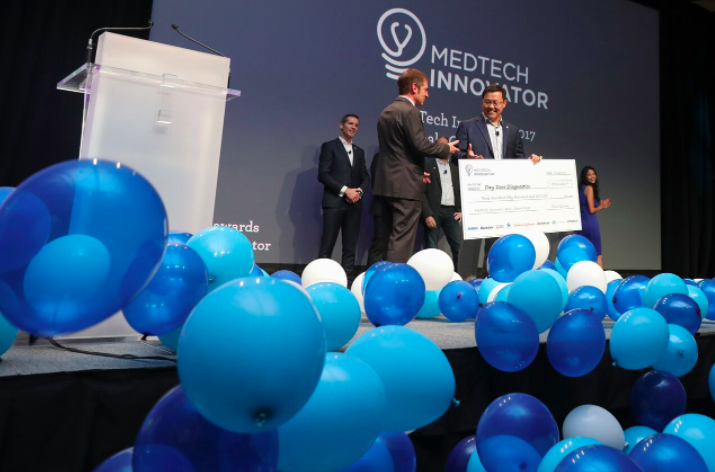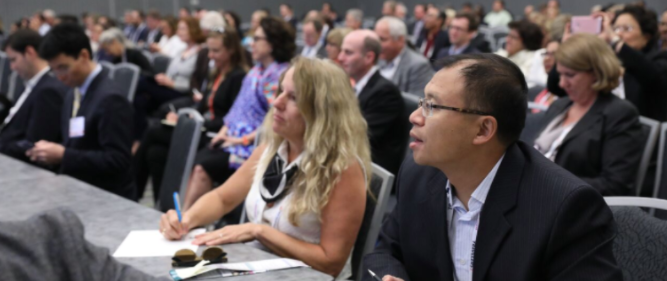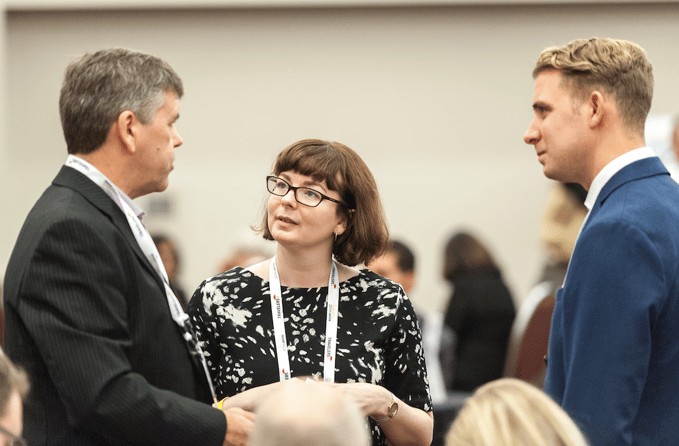For the past several years, policymakers and industry have been exploring ways to improve the quality of health care furnished to individuals while promoting efficiency and value. As I have discussed in the past, I believe that medical technology companies can be a key player in these coordinated care efforts in light of their specialized clinical knowledge, economic expertise, data analytics proficiency, and supply chain management capability. Unfortunately, various regulatory roadblocks stand in the way of the medtech industry’s full participation in the shift to more coordinated care.
My Message to HHS on the Role of Medtech in Reducing Barriers to Coordinated Care
AUTM, Academia and The MedTech Conference powered by AdvaMed
Having spent the better part of my professional career nurturing relationships between big pharma and academia, it’s interesting to observe that there are still areas which are underserved. Case in point, the medical device industry is increasingly finding value in the halls of academia, especially those with powerhouse engineering departments. But who has time to walk the halls looking for PIs who may or may not be open to industry collaboration?
Early-stage medtech venture investment is up, driven by digitally-enabled diagnostics. But is the market ready?

This post is brought to you by Deloitte’s “A view from the Center” Life Sciences and Health Care blog
In my role with the Center for Health Solutions, I spend a fair amount of time researching technology and exploring the impact new medical devices could have on the health care sector. I generally don’t get much first-hand experience with medical devices. That recently changed.
When I told my primary care doctor about some odd sensations I had been feeling in my chest, he suggested a remote monitoring device that plugs right into my smartphone. Anytime I experienced this feeling in my chest, no matter where I was, I could put my fingers on the device and it would transmit an EKG reading directly to my doctor. He could then track patterns and get to the bottom of my symptoms. This type of remote monitoring is far more effective at diagnosing arrhythmia than having a patient travel to a doctor’s office periodically for an EKG test—not to mention the time and expense this device could save both the doctor and the patient.
Given its potential to more accurately diagnose patients and improve health outcomes, it is not surprising that digitally-enabled diagnostics like this one have been attracting venture capital investments.
Apply Now for the 2018 $500K MedTech Innovator Competition and Accelerator

MedTech Innovator, the industry’s nonprofit global competition and accelerator, announced their call for startup and emerging-growth companies to apply to its 2018 competition by the Jan. 26, 2018, deadline. MedTech Innovator will award more than $500,000 in cash prizes and scholarships during the competition.
Patients as Partners in Medical Device Development
This post is brought to you by Battelle
Imagine you are paralyzed, and are given the opportunity to regain control of a few key hand gestures. Which ones would you choose first? A tight fist? A handshake?
How about a credit card swipe?
That was the surprising answer Ian Burkhart gave when researchers from Battelle’s NeuroLife™ team asked him what he would like to work on next. Ian, who was paralyzed in a diving accident in 2011, is the first person to test the NeuroLife technology. Using a chip implanted in Ian’s brain, a sophisticated computer algorithm that interprets brain signals, and a specialized sleeve that sends those signals to Ian’s muscles, NeuroLife has given Ian the ability to consciously control his hand, wrist and fingers.
A little less conversation (a little more action) in outcomes-based contracts?

This post is brought to you by Deloitte’s “A view from the Center” Life Sciences and Health Care blog
I’m recently back from AdvaMed’s annual conference (The MedTech Conference) where, as always, I was struck by the deep commitment to bring innovation to patients. But innovation is in the eye of the beholder. When it comes to medtech offerings, there are many stakeholders who decide if an innovation is going to deliver differentiated results, and what value is merited in return. We highlighted this in our work with AdvaMed and the industry on Effective Value Assessment. And innovation isn’t limited to devices or technology, or even services – innovation can also include novel contracting and business models.
World of Change Coming for Device Manufacturers: Developments in FDA and International Inspections

This post is brought to you by Akin Gump
Learn more about “World of Change Coming For Device Manufacturers: Developments In FDA And International Inspections,” an article by Akin Gump health care and life sciences partners Nathan Brown and Howard Sklamberg.
Programming Spotlight: Patient Pavilion at The MedTech Conference
With three days until The MedTech Conference begins, it’s time to learn about the Patient Pavilion! At Booth #313, the Patient Pavilion will feature four sessions: Insights, Activation, Advocacy, and Engagement. All moderated by Rolf Benirshke, Co-CEO, Legacy Health Strategies, these sessions will educate on how to mobilize patients into care, keep them committed throughout treatments, and initiate brand advocates. As the world of healthcare is transforming, it is important to learn how to best optimize the patient experience.

Here's a quick look at the four sessions:
Exciting news from the AdvaMed team! The MedTech Conference will be held in Toronto, Ontario, in 2020 from October 5-7, marking the first time that the conference will be held outside of the U.S.
Thoughts from AdvaMed President and CEO Scott Whitaker:
“Canada is becoming more and more of a medtech power each year,” said Scott Whitaker, president and CEO, AdvaMed. “The Canadian government’s Innovation Agenda and Ontario’s newly established Office of the Chief Health Innovation Strategist sent a strong signal that the country is open for business. We look forward to working with our local partners to showcase Toronto’s booming health technology ecosystem at The MedTech Conference in 2020.”
Where to eat, drink, work out and spend your time in San Jose
With only a week or two left before The MedTech Conference is underway, it’s time to start planning your time in San Jose. Don't show up to the airport without a plan of what you'd like to cover during your stay in Silicon Valley! From coffee and food to day trips and more, we’ve got you covered.


